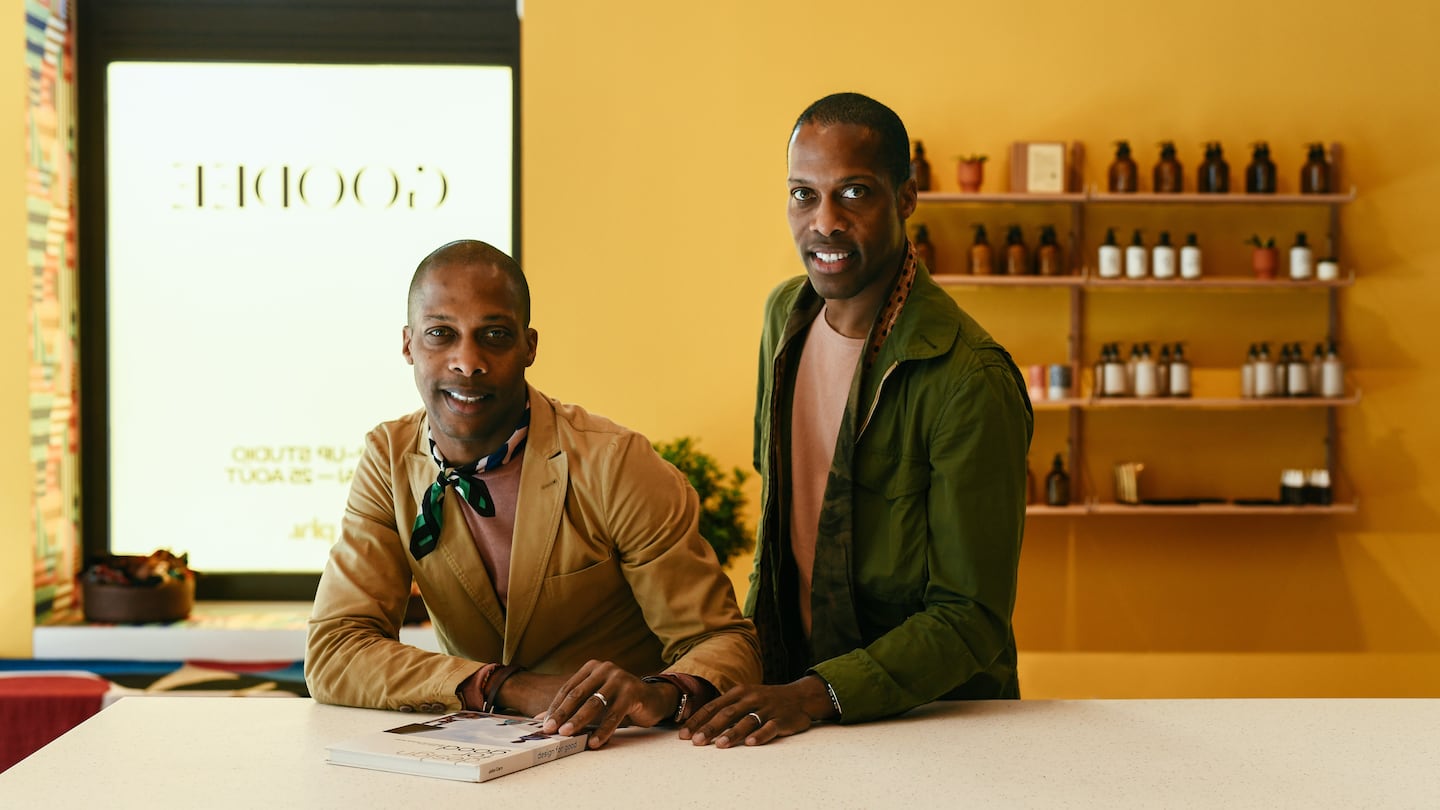
The Business of Fashion
Agenda-setting intelligence, analysis and advice for the global fashion community.

Agenda-setting intelligence, analysis and advice for the global fashion community.

MONTRÉAL, Quebec — Byron and Dexter Peart, the twin brothers who co-founded Want Les Essentiels in 2006, are turning their attention to a new kind of luxury. After taking some time off following their exit from Want in 2017, they are launching Goodee, an e-commerce platform for ethically minded consumers that sells wares with sustainable materials, as well as supply chain and production history.
From bowls to benches to cushions to soap, the products available on Goodee demonstrate sustainability in a range of forms; whether they’re made with recyclable materials, champion artisans in underprivileged communities or feature upcycled pieces that would otherwise end up in a landfill.
Examples of brands — a mix of established and emerging labels — include Ecobirdy, which up-cycles children’s toys into new, recyclable toys and furniture, and ceramics maker Ignorance is Bliss, which colours its pieces with hazardous waste materials from water plants and soil remediation facilities.
While the e-commerce platform primarily stocks furnishing brands, it also has an accessories and personal care contingent comprising brands such as Atelier & Repairs, which turns vintage textile off-cuts into one-of-a-kind scarves, and Haeckels, whose hand creams and facial moisturisers are made with natural ingredients, recyclable materials and refillable glass bottles.
ADVERTISEMENT
We regenerate the social capital of workers from very marginalised communities [by making them] permanent suppliers.
Over the course of their experiences founding Want, the two brothers “saw a market shift in terms of consumer behaviour in the industry and the system and infrastructure,” Byron Peart told BoF. “Goodee was the result of thinking from a curator’s and creator’s side that there wasn’t an element of the ‘why’” underpinning decisions for consumers or brands, he went on to say.
When it comes to selecting products and brands to feature on Goodee, Dexter Peart told BoF, “the filter is simple. For us, it’s three main ideas: good people; good design; good impact. There’s this tremendous availability of product in the market right now. With [such an] abundance of choice, how can people make a good decision?”
Goodee aims to facilitate such “good decisions,” with its website featuring a pared-back e-commerce model and individual brand pages that profile their sustainable practices through helpful symbols indicating the likes of “natural materials,” and “women’s empowerment.” Products available hit luxury and contemporary price points, with tableware ranging from $26 to $352 and soft furnishings ranging from $101 for a throw pillow to $2,500 for a rug.
The Peart brothers have secured backing for Goodee through a seed round of funding, led by Toronto-based private equity firm Good & Well Inc. and rounded out by the Business Development Bank of Canada and several private investors.
Goodee has partnered with the Ethical Fashion Initiative (EFI), whose network of artisans in conflict-torn countries such as Mali and Burkina Faso are producing fabrics designed by Byron and Dexter Peart, to be featured as products on the site. "We regenerate the social capital of workers from very marginalised communities [by making them] permanent suppliers of international fashion and lifestyle brands," says Simone Cipriani, UN officer, founder and head of the EFI. This, in turn, allows for environmental regeneration, such as the instalment of solar panels to heat water for the natural dyeing process carried out in Mali.
The launch of Goodee comes at a time when sustainability and ethical transparency are a growing concern among consumers yet a relatively untapped market in the luxury lifestyle space. According to sustainability consultancy Futerra, the market for ethical products and services in the UK alone is worth £81.3 billion (about $104.9 billion), growing over £40 billion since 2008. “Sustainable living for beginners” as a search term on Pinterest went up by 265% last year.
Sustainability is also a timely matter for policy and industry-wide action, with the UN Alliance For Sustainable Fashion launching in March 2019 in a bid to tackle the social and environmental harm of fashion, of which the EFI is a member agency.
Related Articles:
[ Why Luxury Retailers Are Making a Play for HousewaresOpens in new window ]
[ Op-Ed | Is Fashion Missing the Homeware Opportunity?Opens in new window ]
[ How to Make Sustainable Fashion People Will Actually BuyOpens in new window ]
As they move to protect their intellectual property, big brands are coming into conflict with a growing class of up-and-coming designers working with refashioned designer gear.
The industry needs to ditch its reliance on fossil-fuel-based materials like polyester in order to meet climate targets, according to a new report from Textile Exchange.
Cotton linked to environmental and human rights abuses in Brazil is leaking into the supply chains of major fashion brands, a new investigation has found, prompting Zara-owner Inditex to send a scathing rebuke to the industry’s biggest sustainable cotton certifier.
Over the last few years, the run-up to Earth Day has become a marketing frenzy. But a crackdown on greenwashing may be changing the way brands approach their communications strategies.